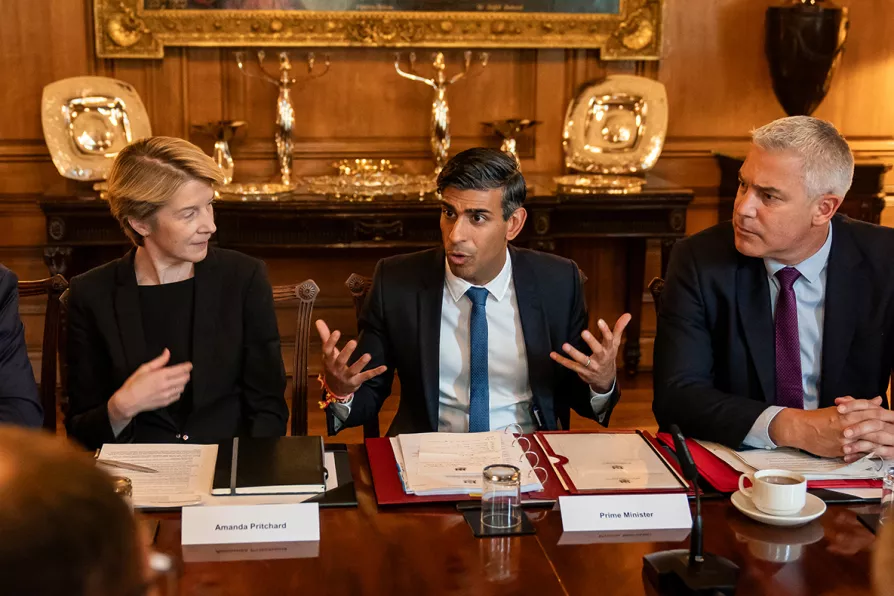Time to burst the bubble of the Westminster ‘consensus’

 Prime Minister Rishi Sunak (centre) and Health and Social Care Secretary, Steve Barclay, with the Chief Executive of NHS England, Amanda Pritchard, as they host a roundtable meeting in 10 Downing Street, London, which will focus on winter preparedness, September 13, 2023
Prime Minister Rishi Sunak (centre) and Health and Social Care Secretary, Steve Barclay, with the Chief Executive of NHS England, Amanda Pritchard, as they host a roundtable meeting in 10 Downing Street, London, which will focus on winter preparedness, September 13, 2023
RISHI SUNAK is holding urgent discussions with NHS management on how the health service will cope through the winter, given chronic staff shortages and ongoing industrial disputes.
Day by day the scale of deterioration of the public estate caused by 13 years of reckless spending cuts becomes clearer. The collapsing Raac concrete behind the crumbling schools crisis turns out to be present in hospitals too, and even in Parliament itself.
This is the context in which Tony Blair wades into Labour’s policy debate to caution against raising public spending. Blair is not bothered by the similarity between Keir Starmer’s policies and those of Rishi Sunak: he argues that this is positive since it suggests a political consensus.
Similar stories

Behind Starmer’s headline-grabbing abolition of NHS England lies a ruthless drive to centralise control so that cuts of £6.6 billion can be made — even if it means reducing cancer services and clinical staff, writes JOHN LISTER













